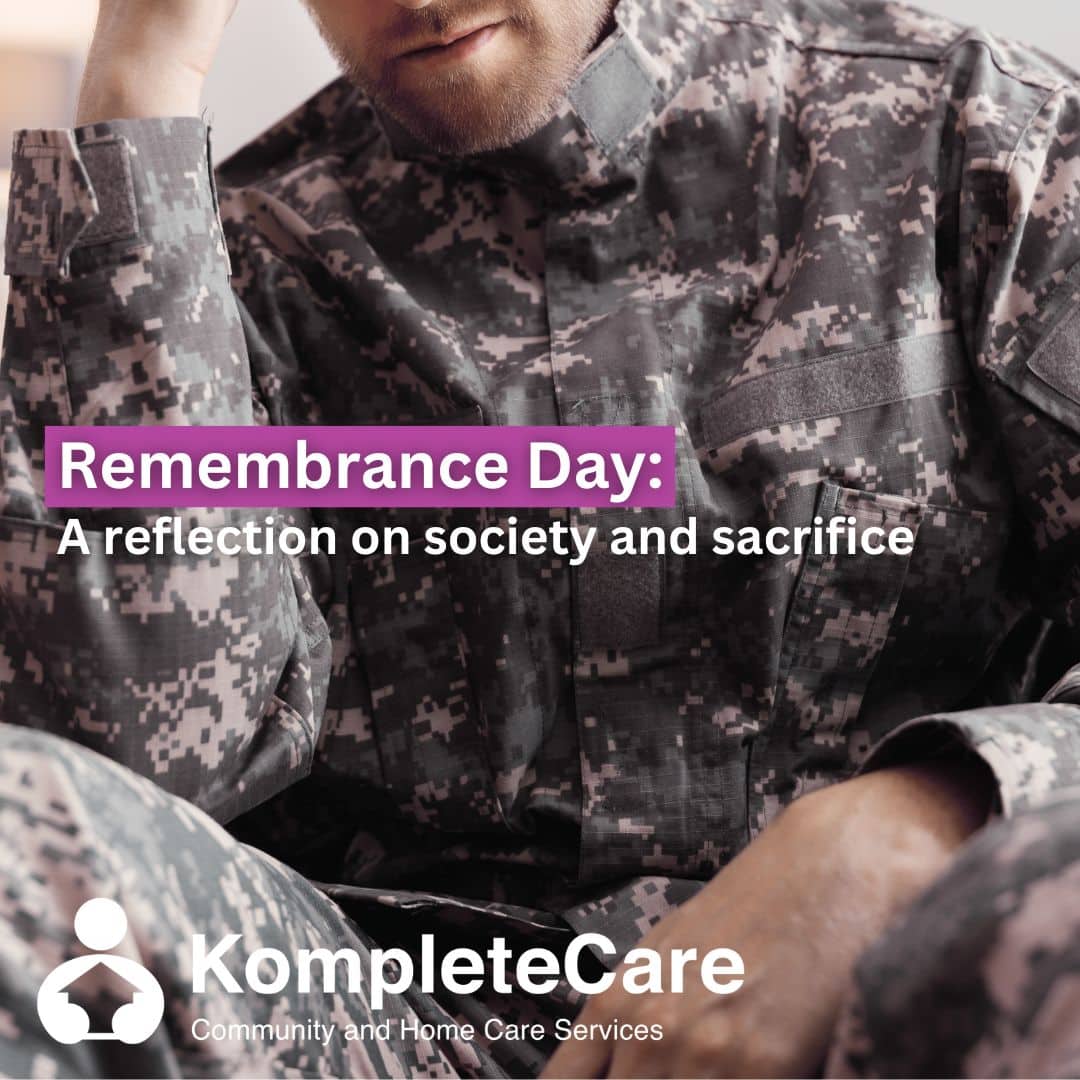Every 11 November, we pause in silence to honour those who made the ultimate sacrifice in wars past.
Remembrance Day, marked by the sombre symbol of the poppy, connects us to a history of hardship, courage and loss. But while the ceremony and reflection remain timeless, society has evolved dramatically. How we view and experience war, remembrance, and freedom today is vastly different from how earlier generations did. Examining the contrast between past and present reveals the shifting dynamics of what we value – and how we live our lives – shaped by those sacrifices.
Then: A time of unimaginable hardship
Remembrance Day originally commemorated the end of World War I in 1918. For those living in that era, war was a lived reality, a devastating global event that touched nearly every household. The loss of life was staggering: millions of people perished, and many more suffered physical and emotional wounds. Soldiers were often sent into battles with little understanding of the horrors that awaited them – trenches, gas attacks, and relentless bombardments from ‘the enemy.’ For families left behind, uncertainty, grief, and economic strain were constant companions.
In the early 20th century, society viewed duty, honour, and patriotism as paramount. For many, enlisting was seen as a moral obligation to protect their country and way of life. War was seen as something heroic, albeit tragic. National unity and sacrifice defined the era, even as lives were shattered.
Remembrance Day in the years following the Great War was deeply personal. People didn’t just mourn abstract losses – they remembered sons, brothers, husbands, and friends. It was a time when communities gathered in collective grief, still raw from the pain of war. Life was hard, and the sacrifices people honoured were all too familiar.
Now: Peace, comfort, and a changing worldview
In contrast, today’s society is one of relative peace and comfort, at least in many parts of the world. For younger generations, war is often something distant – confined to history books or news reports from faraway places. Few have lived through global conflicts, and a national service is no longer a requirement in most countries. The idea of mass conscription and sending millions to fight on a foreign soil feels almost unthinkable.
Remembrance Day today is still an important occasion, but the way we connect to it has changed. For many it’s a time to reflect on the privileges we enjoy – freedom, security, and stability – without having to endure the direct hardships of war. Modern society allows for personal expression, education, and opportunities that those in the early 1900s could never have imagined. We have access to technology, healthcare, and social mobility that make our lives easier in countless ways.
However, this comfort also brings a certain detachment. While we honour the past, we don’t always fully grasp the magnitude of the sacrifices made. Our appreciation can sometimes feel more symbolic than personal. For those of us living in a peaceful nation, war may seem abstract – a historical concept rather than an ongoing reality. Yet, wars continue to rage in parts of the world today, and the veterans of modern conflicts often struggle with a lack of recognition or support once they return home.
Then vs now: What we’ve learned, what we must remember
While our understanding of war has evolved, so has our understanding of how to remember and honour those affected by it. In the past, commemoration was a way of grappling with overwhelming loss, a communal outpouring of grief and solidarity. Now, it is an opportunity to reflect on how far we’ve come and how much we owe to the generations who fought before us.
The silence at 11am on 11 November is no less powerful today than it was a century ago, but its meaning has expanded. It’s not just a time to remember those who died in combat, but to appreciate the peace and prosperity we have now – and to acknowledge our responsibility in preserving that peace for future generations. We live in a world shaped by the sacrifices of those who fought in wars past. Our ability to travel, vote, speak freely, and live without fear of air raids or conscription was hard-won.
In today’s fast-paced, digitally connected world, it’s easy to take these freedoms for granted. Yet, Remembrance Day serves as a reminder that what we have now is not something to assumed or expected – it is something to be cherished. ‘Lest we forget means more than just remembering the fallen – it means appreciating what their sacrifice has given us.
Appreciating what we have today
In a modern context, Remembrance Day allows us to reflect on the contrast between life then and now. We no longer face the same collective fear and uncertainty that comes with world wars, but we are also tasked with a different kind of vigilance. While soldiers fought for freedom and democracy in the past, today we must work to preserve those values in a rapidly changing world.
As we wear our poppies and stand in silence, we should take a moment to not only honour the past, but to consider our role in shaping the future. In a society where freedom is often taken for granted, Remembrance Day offers us the chance to pause, reflect, and appreciate just how far we’ve come – and how much we still need to do to protect the peace so hard-earned by those who came before us.
In remembering, we must also appreciate. Now more than ever we owe it to those who scarified everything to live our lives fully, freely, and with gratitude.
What about KompleteCare?
It is worth considering how organisations, like KompleteCare, embody this evolution. Just as Remembrance Day honours those who fought for a better future, KompleteCare is dedicated to providing personalised support that honours the dignity and unique needs of each individual. In both cases, the essence of service – whether on the battlefield or in home care – remains rooted in compassion and the pursuit for a better life for others. If you are interested in learning more about KompleteCare’s community and home care services, visit our website for details.










